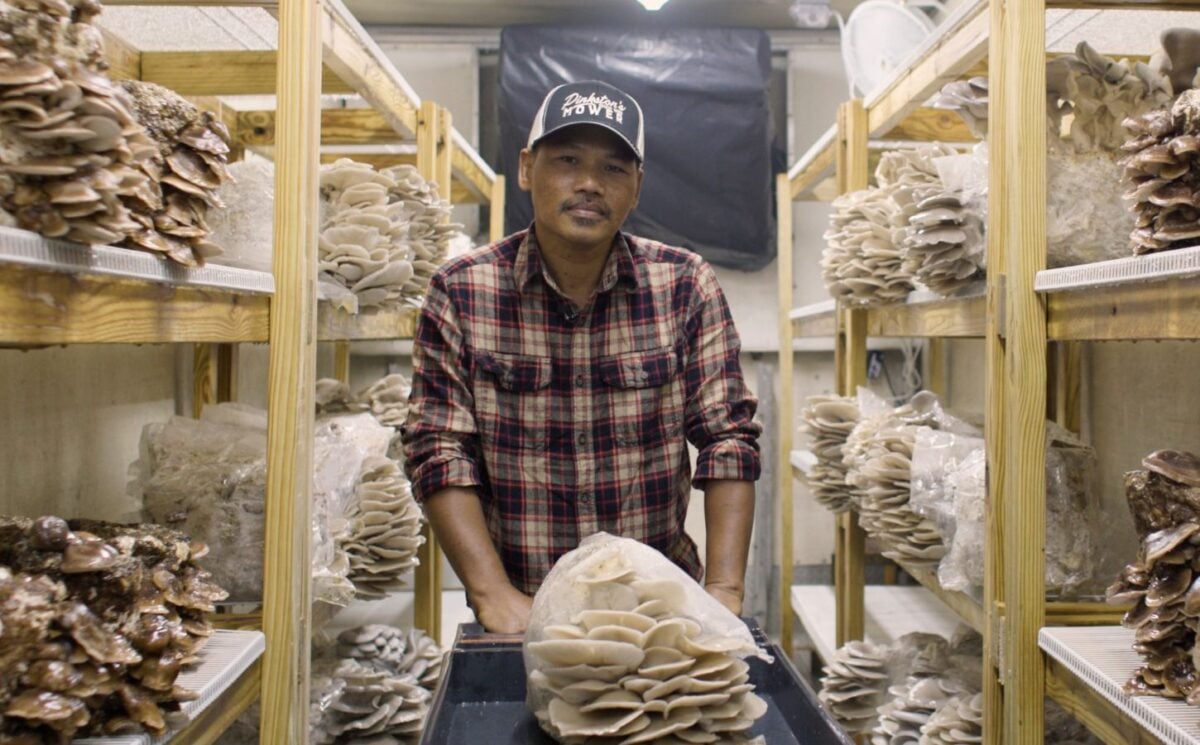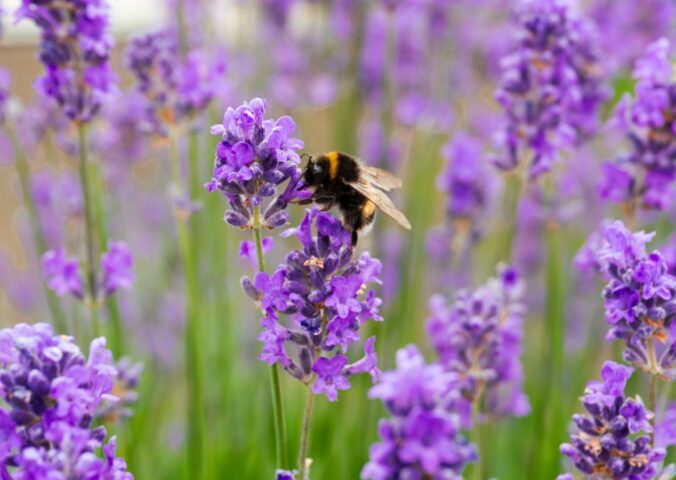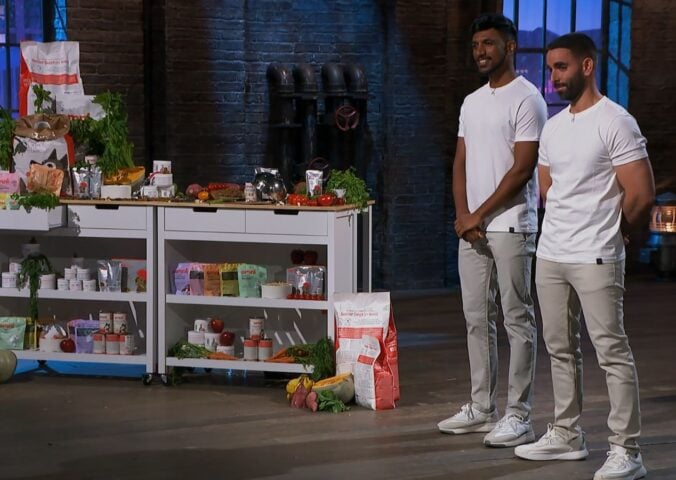Today is Earth Day, an international annual event where we show support for our planet. Animal agriculture is a leading cause of the climate crisis, and addressing our food system has never been more important.
Read more: Meet The Woman Helping Animal Farms Turn Vegan
As part of my work as CEO and president of Mercy For Animals, I help farms “transfarm” – meaning I work with factory farmers to move away from animals to arable farming. I founded The Transfarmation Project in 2019. The project funds and guides U.S. farmers, whether motivated by economic, environmental, or animal welfare concerns, in switching from raising animals to growing plants.
I empathize with those who can’t imagine collaborating with factory farmers, even in a shared mission to dismantle the system. But I also recognize that this mission is monumental, and we need such alliances if we are to achieve it.
This Earth Day, I’d like to celebrate three pioneering farm families — the Halleys, the Faaborgs, and the Lims — who repurposed their factory farms and now combat pollution and the climate crisis while growing specialty crops to feed people.
Read more: Why This Dorset Dairy Farmer Gave His Cows To A Sanctuary And Turned His Farm Vegan
The environmental cost of animal farming
I won’t compare apples to oranges — this is a chickens to strawberries (or hogs to hemp, cattle to mushrooms, and chickens to vegetables or flowers) comparison. Did you know that chicken production churns around 5.4 pounds of carbon per pound of meat, while strawberry production creates just 0.69 pounds of carbon per pound of fruit? Converting one four-shed industrial chicken farm to a strawberry farm would reduce yearly carbon emissions by 14 million pounds. This is roughly the amount of carbon produced per year by more than 1,300 cars.
This same conversion would decrease annual phosphate production by 40 million pounds. How are millions of pounds of phosphate a bad thing? Besides making soil less fertile and lowering the crop yields that our species’ survival hinges on, phosphate runoff from factory farms pollutes lakes and rivers, creating scummy green algal blooms that kill aquatic animals, and it creates ghostly expanses of ocean that can no longer support life. Transitioning this industrial chicken farm to a strawberry farm would also generate 134 million fewer pounds of sulfur dioxide per year. This insidious gas often gives rise to particulate air pollution and harms trees and plants — nature’s vital carbon reservoirs.
The Halley family
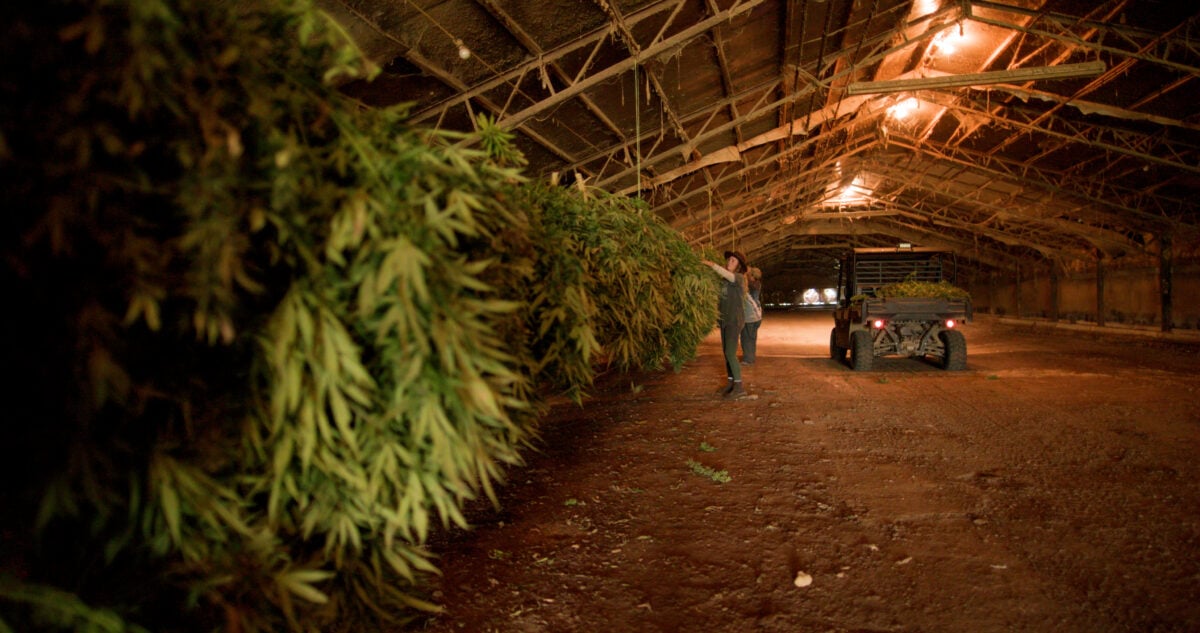
If a four-shed conversion can go so far, imagine the positive impacts of a 12-shed conversion, like the Halley family’s. The Halleys aren’t growing strawberries, but their farm transition is a beacon of meaningful change in their Texas town and beyond.
As contract chicken farmers, the Halleys had raised over a million chickens a year for 30 years. When faced with the financial duress that often comes with contract farming, they decided to give up raising birds for good. But they didn’t know where to turn for help. Some research led them to Transfarmation. Just weeks after getting in touch with my team in July 2020, the Halleys started their first acre of hemp plants.
In October 2020, they celebrated a thriving first crop. After a proud harvest, they dried and stored the hemp in spaces fashioned from their old chicken houses (feel-good aside: their former cattle pasture is now a dog and donkey rescue).
The Faaborg family
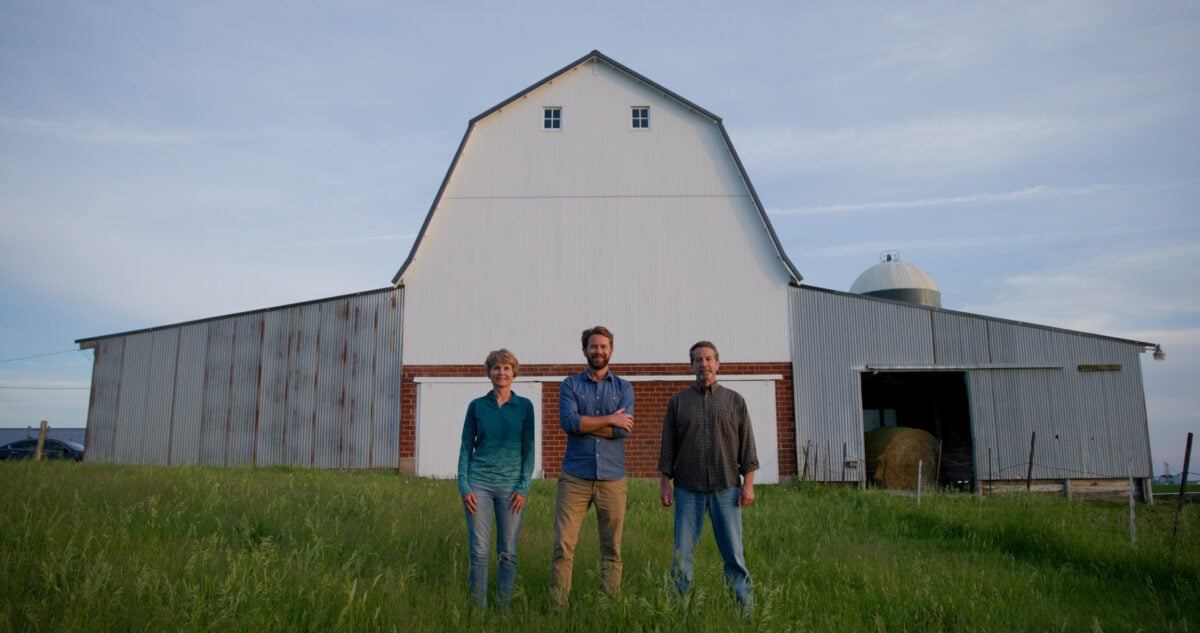
The Faaborg family’s “transfarmation” takes environmental protection to another level, from the trees planted on their property to the solar panel installed to power the entire farm.
The Faaborgs ended their 30-year tenure as pig farmers after working with Transfarmation for one year. Their former pig farm, just north of Des Moines, now offers value-added fresh products across Iowa.
The Faaborgs’ passion had been to create low-carbon farming practices that immediately impacted climate change. The impacts, while immediate, are also compounding — the Faaborgs’ farm transition stands as a model for other farmers to replicate. Now imagine that four-shed chicken-to-strawberry conversion multiplied by hundreds or even thousands of farmers nationwide.
The Lim family
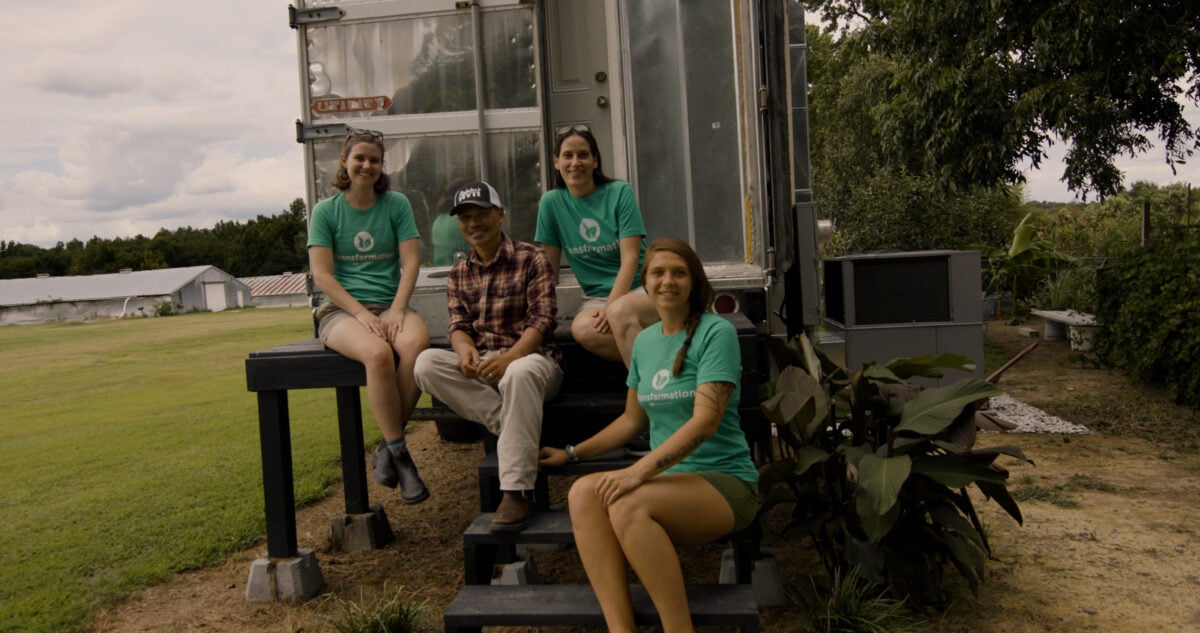
North Carolina farmer Tom Lim had raised chickens for 20 years before his contract was terminated without warning. Tom and his wife, Sokchea, had always nurtured a small plot of vegetables — Ping Tung long eggplants, jujube fruits, Chinese long beans, lemongrass, Thai basil, kaffir limes and more staples of their Southeast Asian diet.
With Transfarmation’s support, they have added specialty mushrooms to their crop production and are now expanding it to include berries, tomatoes, lettuces and other specialty crops. The Lims’ farm transition has reconnected a happier, more fulfilled couple with what brought them to farming in the first place, caring for the land and feeding people.
Plant-based is the future
The plant-based food industry is forecast to be worth USD $85 billion by 2030. Plant-based food producers will need an abundant, dependable source of key ingredients — peas, mushrooms, oats, greens and more. Similarly, the demand for hemp as food, textile fiber, and medicine is skyrocketing. Transfarmation not only partners with farmers to help them transition to plant production but connects them with businesses in need of their products. It’s a win-win-win — for farmers, the planet, and animals.
This Earth Day, let the Halleys, Faaborgs and Lims be a testament to the power of courageous personal change. We can all be counterforces to climate change and protectors of land, water and air — and of all who inhabit them. We may not have a farm to transition, but we can choose plant-based foods, and we can support farmers by buying plant-based products directly from them. The impacts of plant-based shifts on pollution and climate are tangible; we know they make a difference. Chickens and strawberries have proven it.
Visit us at thetransfarmationproject.org to learn more.
Read more: New Online Toolkit Helps Farmers Exit Animal Agriculture
